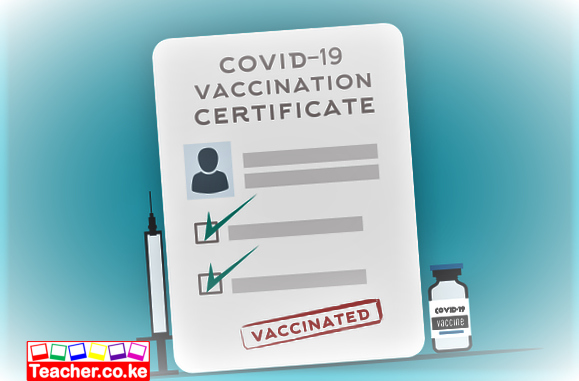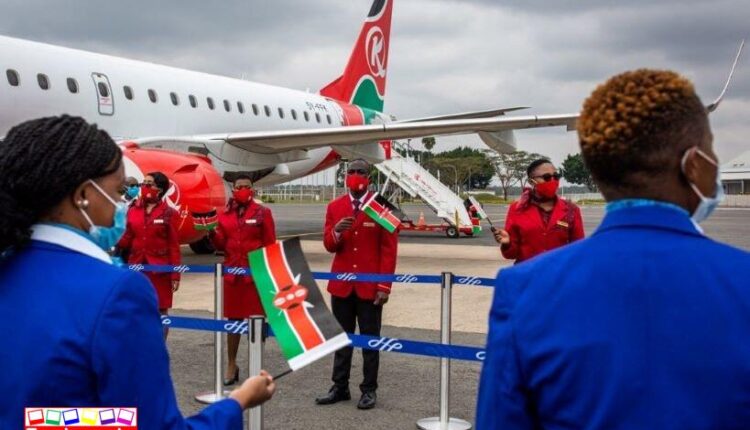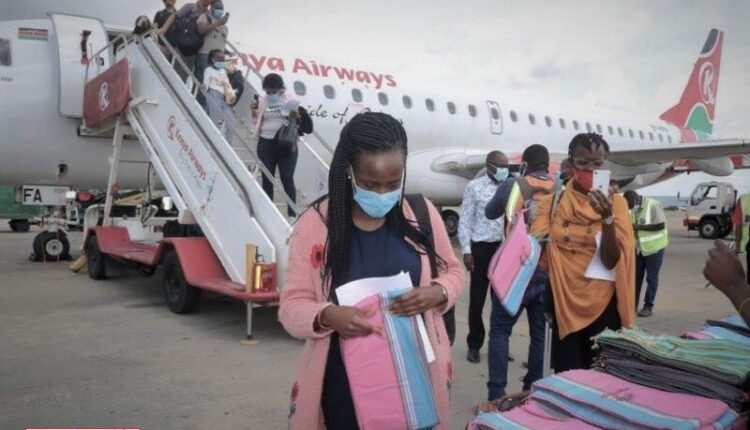How COVID-19 Vaccination Requirements Have Affected International Travel
When COVID-19 threatened the human race, governments from all over the world invested their efforts in several research endeavors to create counter solutions to the pandemic. After the space of almost a year (from December 2019 to December 2020) since the identification of COVID-19, the World Health Organization (WHO) began to validate several vaccines for use by the emergency use listing process (EUL).
By order of validation time, these vaccines are the Pfizer/BioNTech Corminaty (31 December 2020); the SII/COVISHIELD and AstraZeneca/AZD122 vaccines (16 February 2021); the Jansenn/Ad26. COV 2 S. developed by Johnson & Johnson (12 March 2021); the Moderna COVID-19 vaccine (mRNA 1273) (30 April 2021); the Sinopharm COVID-19 vaccine (7 May 2021); the Sinovac-CoronaVac (1 June 2021); the Bharat Biotech BBV152 COVAXIN vaccine (3 November 2021)
Governments from all over the world created programs that ensure massive COVID-19 vaccinations of people in their countries.
The Anti-Vaccination Mindset

Regardless of the new possibilities the COVID-19 vaccination presented, people were skeptical about it. The COVID-19 experience had already sown potent anxiety and confusion seeds. Negative media info about vaccine development, use and effect, and the rumor-mill of several conspiracy theories did not help the cause.
Several people spoke of (and posted messages to their social media accounts) suffering from harmful side-effects of the vaccines. Some celebrities shared such messages too. Famous rapper, Nicki Minaj, posted to her Instagram account alleging that a man had become impotent after getting vaccinated. These messages aggravated the anti-vaccination attitude of many people from all over the world. It did not matter that several figures in science and the government of the USA dismissed her claims as ridiculous.
Countries put more effort into convincing people that vaccination was safe. Many country leaders like the President of the United States of America (USA), Joe Biden, took their shots publicly to quell these doubts. Different states in the USA offered people incentives to get vaccinated. Several scientific persons and health organizations (including WHO) verified that contrary to what people had heard or read on social media, vaccination does provide strong protection against serious illness, hospitalization, and death.
Imposing Of COVID-19 Vaccination Requirements

However, many people are still adamant about vaccination although, the virus continues to evolve to more lethal (they spread faster and easier) variants (Delta and the more recent, Omicron). Governments do not want a repeat of the early despairingly high death tolls and economic depressions that resulted from the COVID-19 outbreak, so some of them like, the Kenyan government, have mandated vaccination for all their citizens if they are to receive government in-services by 21 December 2021.
Most governments have imposed COVID-19 vaccination requirements on those who wish to travel to their countries. However, within these requirements, they have embedded viral test requirements too. The following are sample vaccination and test requirements of two countries from different continents (i.e., North America (USA) and Africa(Uganda)) :
USA COVID-19 vaccination and test requirements
- Foreigners should be fully vaccinated against COVID-19 and should show proof of vaccination status before boarding planes to the USA, with only limited exceptions.
- Those who have recently recovered from COVID-19 may instead travel with recovery documentation. For instance, one’s positive COVID-19 viral test result on a sample taken no more than 90 days before the flight’s departure from a foreign country, and a letter from a licensed health care provider or a public official stating your travel clearance.
- Airplane passengers aged two years or older, regardless of their nationality or status of vaccination, have to present documents of the negative viral test result on a day of the flight’s departure to the airline before boarding the flight. That includes all travelers- US citizens, lawful permanent residents (LPRs), and nationals.
- For purposes of entry into the United States, vaccines accepted will include those FDA approved or authorized, as well as vaccines with an emergency use listing (EUL) from WHO.
Uganda COVID-19 vaccination and test requirements

- When entering or departing Uganda, you must present evidence of a negative COVID-19 (PCR) test taken within 72 hours of arrival or departure from an accredited laboratory.
- All travelers, including, children will have a PCR test upon arrival at their own expense of US $65 (at Entebbe airport), regardless of vaccination status or country of origin.
Effects Of COVID-19 Vaccination Requirements On International Travel
More Documentation
International travelers should move with more documentation that presents their COVID-19 test results and vaccination status. From the above samples of regulations imposed by the two countries, it’s clear that one would be unable to board a plane without them.
More Preparation Time
One has to use more preparation time for their international travel than before since some of these vaccination requirements demand documentation of a specific period; they have to make time and visit the laboratories and concerned authorities to fulfill the requirements. In the beginning, some travelers in Uganda even missed their flights because of these requirements and incurred losses since they n had to purchase new tickets.
Lack Of Enough Workforce
Although governments passed these requirements, some do not have enough funding to build fast and efficient systems to simplify fulfilling these requirements for international travelers. People spend valuable time in lines waiting to get vaccinated and even more waiting to get the required documents.
Elimination Of Impromptu Travel
It’s almost impossible to take impromptu international flights anymore. The delay is inevitable with these vaccination requirements. It was already not possible with some countries in Africa. However, in more developed countries where people could book and board a plane in minutes (or a few hours) to attend to (maybe) a failed business matter or whatever issue in a different country, these requirements are cumbersome ad frustrating.
Increased Travel Costs
This affects people from countries with fewer vaccines. People end up paying (bribing) health workers and other concerned authorities for a dosage since there are too many people yet few vaccines. It is also true for the vaccination process. Also, the money required for viral testing is too high, yet most people are not financially stable.
Fewer International Travelers
People can no longer travel without these requirements. Despite joint efforts by various governments and organizations, many people are still not yet fully vaccinated. Some are stuck at the first or second doses and have no idea when to get their next dosage.
Despite all the new processes we have to endure because of the pandemic, it’s clear that all these are more measures that governments are putting in place to protect their people. Vaccination is the best measure to take to live as normally as before. However, we still have to remain cautious even when fully vaccinated.
The World Health Organization (WHO) states that vaccination alone is not enough to stop the pandemic. We still have to maintain other essential preventive measures: proper covering of the mouth and nose using face masks, maintaining a social distance of at least 1 meter, avoiding using one’s hands to touch their eyes, nose, and mouth, frequent sanitization of hands and any other surfaces, staying home if unwell and avoiding poorly ventilated places to break the infection chain.
Read Also:
- TSC Advertises 21 Vacancies of Internship with Deadline Set On 22nd November
- Online TSC Payslips – Login, Register, Download and Related Questions
- KEPSHA Conference for Primary School Heads Scheduled on 27th December
- 2021/2022 TSC Wealth Declaration Procedure for Teachers and Administrators
- Parents to Pay Huge Amounts for Destruction in Schools
- Students Found Guilty Of Burning Schools Will Not Join Public Schools
- Eleven Students in Court over Arson
- Solved: How to Stop Students Strikes in Kenya
- Students to be Educated on Tax
- TSC TPAD2 How to Open, Create a new Account, Activate, Login, and fill in Appraisal Online
- KMTC Campus on the Spotlight over Unpaid Fees
- Only 20000 Teachers Register for December TPD Throwing TSC Plans In Disarray
- KCSE Candidates with Grade E to Join Colleges
- 2021/2022 TSC Wealth Declaration Procedure for Teachers and Administrators
- Ministry Of Education Announces Mid-Term Break Dates for Secondary Schools
- TSC Circular on Online Declaration of 2019 – 2021 Income, Assets & Liabilities (DIALs)
- Teachers Given 31st December 2021 Deadline for Declaration of Wealth
- TSC Conducts Promotion Interviews for 2419 Teachers
- Recently Established Universities to Benefit More in Proposed University Funding Framework
- Government of Hungary Increases Scholarship Vacancies for Kenyan Students
- 2022 KCPE Predictions trial Exams with Answers



Comments are closed.